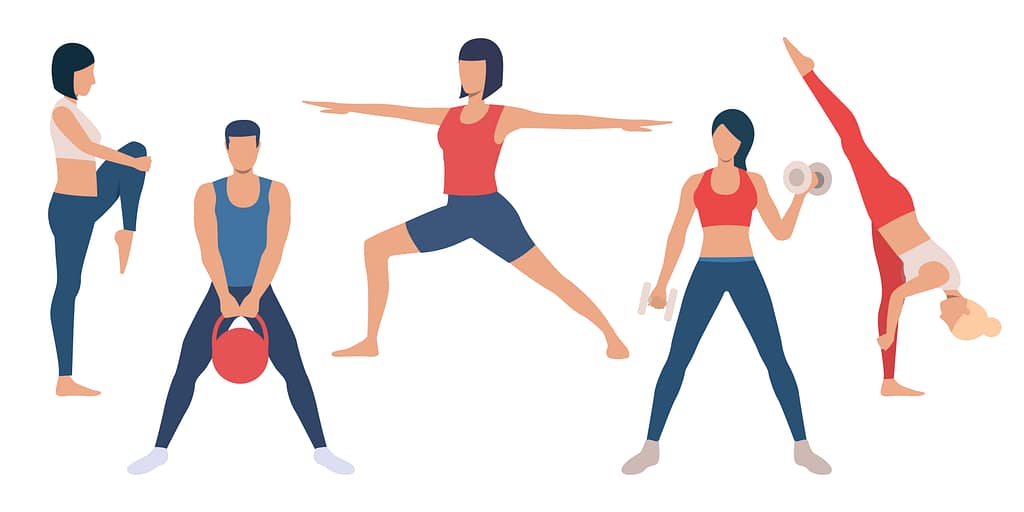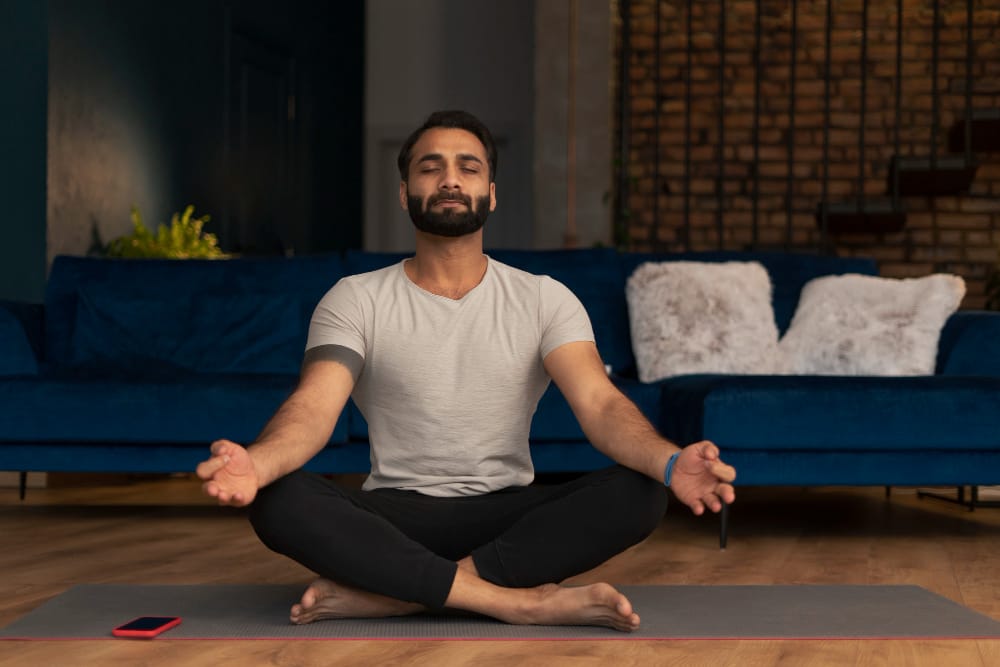Stress-Busting Exercises for Coping with Depression

Introduction to Exercises to Ease Depression
Dealing with depression can be challenging, but exploring options like TMS treatment for depression can be a game-changer. Exercise for depression has long been recognized as a powerful tool in combating depression, as it helps release feel-good chemicals known as endorphins. In this article, we’ll delve into the synergy between transcranial magnetic stimulation for depression and stress-busting exercises, shedding light on how exercise for depression, can help you on your journey. We’ll also guide you on finding the right doctors for dTMS depression treatment in Mumbai.
The Link Between Exercise and Depression
TMS treatment for depression is gaining recognition for its effectiveness, and it pairs remarkably well with exercise. How exercise reduces stress? Engaging in regular physical activity stimulates the release of endorphins, which are natural mood enhancers. These chemicals interact with receptors in your brain, reducing the perception of pain and triggering feelings of euphoria, similar to the effects of opioids.
Moreover, exercise and stress relief promotes better sleep, increases self-confidence, and helps manage stress and anxiety. It also serves as a distraction from negative thoughts and creates a sense of accomplishment, boosting your self-esteem.
Types of Stress-Busting Exercises
What exercise helps the most with depression? When it comes to reducing stress and managing depression, different exercises work for different individuals. It’s important to find activities that you enjoy and suit your physical abilities. To get the most out of dTMS treatment for depression, it’s essential to explore various stress-busting exercises.
Aerobic Exercises for Mood Enhancement
Aerobic exercises, also known as cardio exercises, are known for their mood-enhancing effects. Activities like brisk walking, jogging, cycling, and swimming increase your heart rate, pumping more oxygen to your brain and releasing endorphins. These exercise and stress relief don’t just improve your mood but also enhance the effects of TMS in depression treatment. These exercises not only boost your overall mood but also improve cardiovascular health, helping to lower the risk of heart disease and other chronic conditions.
Mind-Body Exercises for Relaxation and Stress Reduction
Mind-body exercises focus on the connection between the mind and body, emphasizing mindfulness and relaxation. Examples include yoga, tai chi, and Pilates. These exercise and stress relief promote deep breathing, stretching, and flexibility, which can help reduce muscle tension and promote relaxation. Regardless of your location, whether you’re receiving TMS treatment for depression in Mumbai at our RNR Medicine Department at Jaslok Hospital or elsewhere, integrating these exercises can be highly beneficial.
Strength Training for Improved Mental Well-being
Strength training exercises involve using resistance to build and tone muscles. While typically associated with physical strength, strength training also offers immense benefits for mental health. These exercises can improve your mood and confidence, providing valuable support for TMS in depression therapy. Additionally, strength training increases the production of endorphins and other neurotransmitters, enhancing mood and reducing symptoms of depression.
Creating a Personalized Exercise Routine
To maximize the benefits of exercise in managing depression, it’s important to create a personalized exercise routine that works for you. Here are some tips to help you get started:
-
Establish Achievable Objectives
Begin with modest milestones and progressively elevate the vigor and length of your exercise routines. Focusing on goals that are within reach is key.
-
Find an exercise buddy
Working out with a friend or family member can make exercise more enjoyable and help keep you accountable.
-
Mix it up
Variety is key. Incorporate different types of exercises into your routine to prevent boredom and engage different muscle groups.
-
Schedule it
Treat exercise like any other important appointment. Block off specific times in your daily or weekly schedule for physical activity.
-
Listen to your body
Be mindful of the sensations in your body both during and after your workout. Should you encounter any pain or discomfort, make sure to adapt your exercise routine accordingly.
Overcoming Barriers to Exercise
While exercise can be highly beneficial for managing depression, it’s not always easy to get started or stay consistent. Here are some strategies to overcome common barriers:
Addressing Motivation Challenges
Lack of motivation is a common hurdle when it comes to exercise. To stay motivated:
-
Set realistic and achievable goals
Break down your goals into smaller, attainable milestones so you can track your progress and maintain motivation.
-
Reward yourself
Treat yourself to something you enjoy after completing a workout or achieving a goal, such as watching a movie or indulging in a small treat.
-
Find a workout playlist
Create a playlist of your favorite upbeat songs to give you an extra boost of motivation during your workouts.
Finding Enjoyable Activities
Which activity would be best for a depressed patient? Engaging in exercise for depression that you find enjoyable can increase your chances of sticking with them. Try out different activities until you find something that brings you joy. Some options include:
- Dancing
- Hiking
- Rock climbing
- Martial arts
- Team sports
Dealing with Physical Limitations
If you have physical limitations, it’s important to find exercises that accommodate your needs. Consider:
-
Low-impact exercise
Swimming, water aerobics, and cycling are gentle on the joints and can provide an effective workout without putting excessive strain on your body.
-
Adapting exercises
Modify exercises to suit your abilities. For example, if you have knee problems, you can try seated exercises or use resistance bands instead of free weights.
Incorporating Exercise into Your Daily Life
Incorporating daily exercise needn’t be complex. Here are some simple ways to make it a part of your routine:
- Take the stairs: Opt for the stairs instead of the elevator whenever possible.
- Walk or bike to work: Consider walking or biking to work, if possible, rather than driving
- Schedule active breaks: Take short breaks throughout the day to engage in quick exercises like stretching or going for a brisk walk.
Monitoring Progress and Making Adjustments
Keep track of your exercise journey and monitor your progress to stay motivated and make adjustments when needed. Consider:
-
Keeping an exercise journal
Record your workouts, how you felt during and after, and any improvements you notice, both physically and mentally.
-
Seeking professional guidance
If you feel overwhelmed or unsure about your exercise routine, seeking guidance from healthcare professionals, including doctors for TMS depression treatment in Mumbai, can help you make the necessary adjustments.
Exercise for depression is a powerful tool for managing depression and improving mental well-being. By understanding the link between exercise and depression, exploring different types of stress busters exercises, and creating a personalized exercise for depression routine, you can take significant steps toward coping with depression and living a happier, healthier life. Whether you’re exploring TMS treatment for depression in Mumbai or elsewhere, remember that progress takes time, and finding enjoyable exercises is key. So lace up your sneakers, grab your yoga mat, and embark on a stress-busting journey to combat depression.
TMS Treatment Clinic for Depression in Mumbai
The Jaslok Hospital’s RNR Medicine Department is one of the oldest tertiary care, multi-specialty trust hospitals in the country. This year is the 50th year of its existence. The Hospital has been the pioneer in the field of neuromodulation and bringing innovative technologies and techniques to the country. In its 50th year, it promises to bring a very futuristic program which is the first of its kind in the country. With a team of more than 20 years of experience in various fields and the latest equipment, Jaslok Hospital has become the best TMS treatment clinic for depression in Mumbai.
The RNR Medicine Department at Jaslok Hospital has a team of experts from various fields including psychiatrists, neurologists, neurosurgeons, neurophysiologists, psychologists, etc. They have the clinical experience of more than 20 years so that it can be assured that patients receive the best and most genuine advise for their condition.








